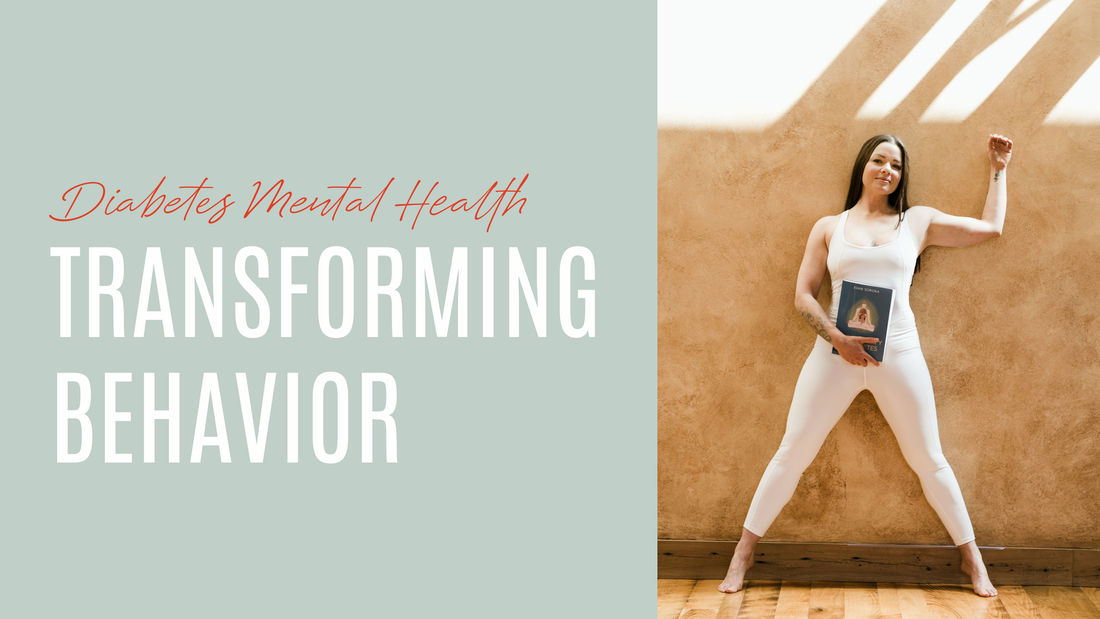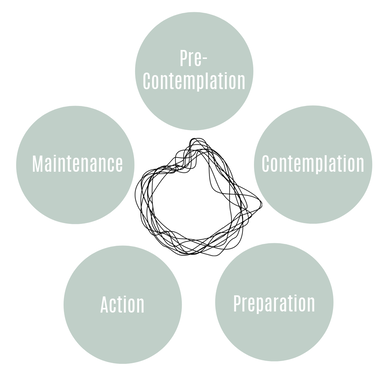|
We make hundreds of decisions each day regarding our diabetes care. But how many of those decisions are honestly in the best interest of diabetes? It is nearly impossible to put diabetes first 100% of the time. The skill is figuring out how to increase your time in range while enjoying your life. The problem is when we're driven by impulses, strong emotions, and negative thought loops. We cannot create a separation between the Self and diabetes. Over the last several weeks, we've put mental health with diabetes in the spotlight, looking at transformation on the level of thought and mood. Now, let's look at behavior and learn how to glean wisdom from yoga psychology. Let Me Remind You This is not a conversation about diabetes perfectionism. It is about narrowing the gap between your impulses and conscious choices. To achieve lasting physical and mental health with diabetes, we must develop willpower over dysfunctional habits and replace them with positive ones. We've all heard that challenges are growth opportunities. However, most people are actually entirely unaware of their potential to change. Many of us, through yoga practice, awaken to new possibilities but lack the methods and means to sustain real behavioral change. Or we change one thing only to find that there is something else underneath that is harder to eradicate. So we may give up or rationalize true transformation because the pull of the "comfortable know" is stronger than the freedom of uncertainty. 5-Steps to Behavioral Transformation According to a behavioral psychology theory proposed by James Prochaska, people who have made lasting behavioral changes in their lives go through five distinct stages: pre-contemplation, contemplation, preparation, action, and maintenance. These stages have been successfully tested on many behavioral management changes, including diabetes. You'll find that the steps are non-linear, a dynamic and ever-evolving process.
Small Steps: When implementing behavioral changes, it's easy to get overwhelmed by the big picture that we lose sight of the small steps forward. Over ten years ago, I was frustrated with my A1c, lingering at 7.2. I was doing everything I was "supposed" to be doing. Eating right, exercising, meditating, but I still couldn't bring my numbers any lower. The path to a lower A1c seemed impossible until my doctor said this to me, "all you need is numbers in range an extra two hours a day". I realized at that moment how doable it was. Looking at my daily patterns, I saw that my biggest BG challenges were after meals and overnight. I began paying more attention to pre-bolusing and eating dinner earlier, which helped my post-prandial and overnight numbers. Pretty soon, without much effort, I had achieved my desired A1c goal. Selective Renunciation Ultimately it is not enough to want to change behavior. We have to develop the means to believe we are the change and sustain it. There are many yoga methods to help us build our willpower, one of which is reducing stress. Another is an active process of selective renunciation called TYAGA. Tyaga means renunciation. It is a practice of tapas - discipline - to let go of anything you are attached to because that attachment is a cause of bondage and suffering. When we're attached to something, there is a thought and physical sensation bound to an action. For instance, if you're addicted to cigarettes and are trying to quit, you'll feel a craving in the body and obsessive thoughts about it. With tyaga, we learn to witness the lure of desire while remaining steadfast in our determination. Think of it like this; after you've treated a low blood sugar and waiting for 15 minutes in the discomfort without eating more. The Starting Point to Renunciation What's so cool about tyaga is that small steps can lead to significant gains. Pick one thing easy thing you're attached to and renounce it for 40 days. It could be food - like apples, or a habit - like watching to go to bed. The key is to start easy! Don't go straight for the most challenging thing like chocolate, coffee, or getting rid of social media. Once you've mastered that, pick something a little more challenging. Over time you'll develop greater self-discipline over the things you are attached to, so when you have to say no to what's easy and yes to what's hard, you'll have the willpower. Remember, the process of transformation is a spiral. It is not linear. Just when you master one thing, you'll find there'll be something else even more challenging to master. But you'll know that your efforts are working when you are less triggered by diabetes and less attached to perfection. You can say no, and there is zero internal conflict. Practicing tyaga is a simple strategy to build your self-confidence and improve your health.
0 Comments
Leave a Reply. |
AuthorEvan Rachel Soroka Archives
November 2021
Categories |
220 West Main St. Unit 202, Aspen, CO 81611 CONTACT 970-618-9042 © COPYRIGHT SOROKA YOGA THERAPY 2021. ALL RIGHTS RESERVED.



 RSS Feed
RSS Feed